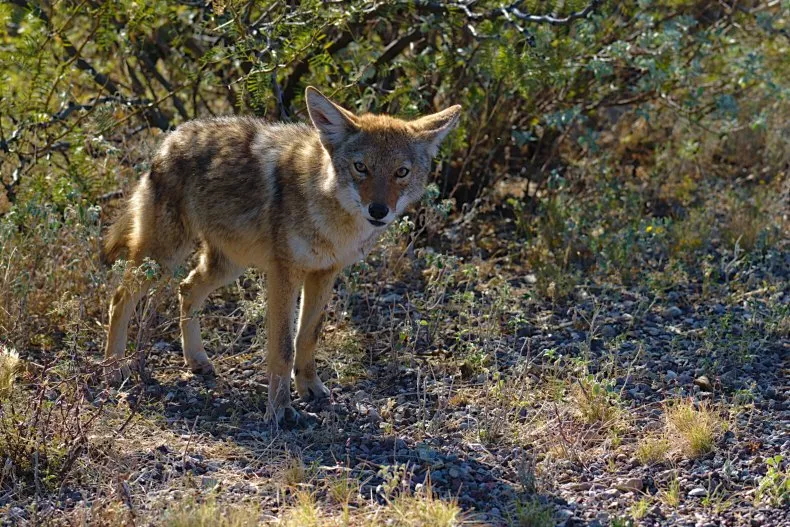A 5-year-old boy was nearly dragged into woods by a coyote until his mom stepped in, Washington officials said.
The incident happened at about 6 p.m. Tuesday, Dec. 31, in the Maplewood Heights neighborhood in Renton, the Washington Department of Fish & Wildlife said in a news release.
A coyote bit the boy “in the upper body,” then tried to drag him into a green belt, officials said.
His mom saw what happened and rushed to stop the wild animal, and the coyote let the boy go but stayed in the area, officials said.
The child was taken to a hospital for non-life-threatening injuries, officials said. Wildlife officers tried to find the animal to kill it, but it ran into the trees, officials said.
Renton is about a 10-mile drive southeast from Seattle.
What to know about coyotes
Coyotes can be found almost anywhere in North America, including in cities and neighborhoods, according to National Geographic.
“Adaptability — that’s the main reason for the success of the coyote.
A coyote is naturally adaptable because it eats such a wide range of food,” National Geographic reported.
“If it can’t find mice or voles to eat, lizards, insects, or even garbage will do.”
Here’s how experts say you can avoid conflicts with coyotes:
- Don’t feed coyotes: Feeding a coyote in a residential neighborhood can cause the animal to lose its fear of people.
- Don’t let pets run loose: If coyotes live nearby, don’t let pets out without a leash.
- Don’t run from a coyote: Instead, you should shout, wave your arms or throw something in its direction.
- Don’t haze or aggravate a calm coyote: If the animal is avoiding humans and pets, leave it alone. Report aggressive coyotes: If the coyote doesn’t show fear toward humans, let wildlife officials know.
This article by Helena Wegner was first published by Tri-City Herald on 3 January 2025. Lead Image: Wildlife officials tried to find a coyote (not the one pictured) that attacked a 5-year-old boy in Renton, Washington, but couldn’t. Photo by Mana5280 via Unsplash.
What you can do
Help to save wildlife by making a monthly or one-time donation as little as $1.





Leave a Reply